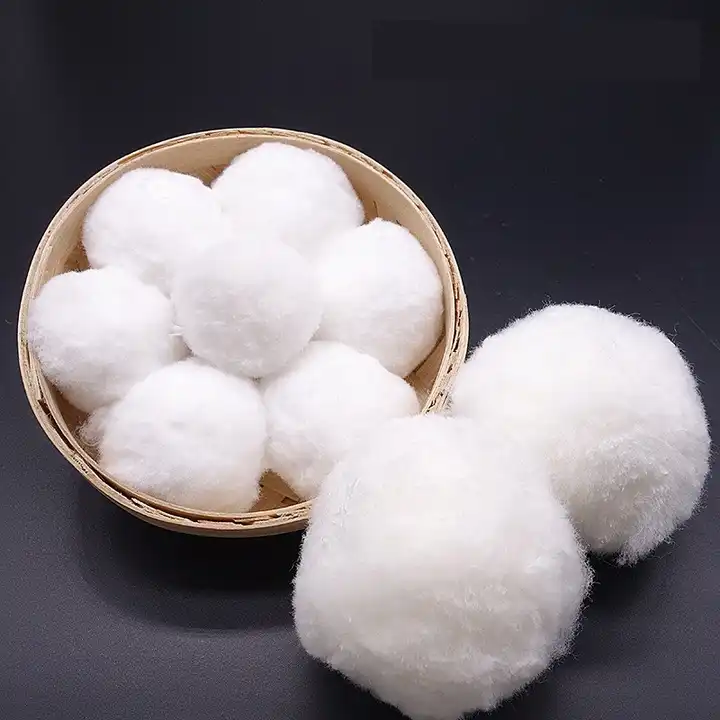As swimming pool technology evolves and people pay more attention to environmental protection, the method of pool filtration is increasingly being emphasized. Traditional pool filtration technologies, such as using sand or filter paper, have long been used to maintain the quality of pool water. However, in recent years, a new type of filter material – pool filter balls – with their unique advantages, are gradually gaining favor in the market. A comprehensive comparative analysis between the pool filter ball method and conventional filtration methods helps understand their differences, thereby better meeting different needs.

From the Perspective of Filtration Efficiency
These filter materials are made of very fine polyester fiber, which can be tightly combined to form a complex mesh structure. This design allows the pool filter balls to efficiently intercept particles below 3 microns. For example, if these filter balls are installed in a regular home swimming pool, users will notice a significant improvement in water quality, as even the minutest impurities almost invisible to the naked eye are effectively removed. The high-efficiency filtration function is particularly suitable for public swimming pools or hot spring baths that have higher requirements for water cleanliness and hygiene standards.
Conventional sand filtration uses coarse sand as the filter medium. Although these sand grains can filter out larger substances such as leaves and bugs, they struggle with particles smaller than 20-40 microns. In practice, a large amount of suspended particles and impurities still remain in the water, affecting the cleanliness and hygiene of the water quality. Filter paper, as another traditional filtration medium, works well for precise filtration in laboratories, but its filtration capacity is limited in large-scale pool water treatment and requires frequent replacement.
From the Perspective of Service Life and Maintenance
Made from durable polyester fiber, which is both corrosion-resistant and wear-resistant, they can be used for many years under normal working conditions. For example, a home swimming pool equipped with such filter balls may only need to be cleaned once or twice a year, without the need for frequent replacement.
Additionally, cleaning the filter material is relatively easy. It can be washed with ordinary water or a mild chemical cleaner, and the cleaned filter material can be reused, thus reducing maintenance costs and time. For example, in commercial swimming pools, because the filter beads are easy to clean and reusable, the downtime of the pool due to filter material replacement can be significantly reduced.
Sand filters require sand of a certain grain size as a filtering medium. As the sand wears out over time, it generally needs to be replaced every few years. When replacing the filter material, new material needs to be purchased. For example, in a large public swimming pool, replacing the sand in a sand filter could result in the pool being unusable for several days, increasing the risk of operational interruption. Filtration systems that use filter paper, especially those dealing with a large volume of water, often require frequent replacement of the filter paper.
From the Perspective of Compatibility and Installation
Pool filter balls are flexibly designed and suitable for most modern swimming pool filtration systems, including those initially designed for sand filtration or other forms of filters. For example, a newly built home swimming pool or an updating commercial swimming pool can easily use these filters.
The installation process is straightforward. Users only need to place the filter balls in the appropriate location. This convenience means that pool owners do not need specialized technical support to complete the installation themselves. Taking a home swimming pool as an example, the owner can add or replace a filter ball by themselves following the manufacturer’s instructions.
Traditional filters, such as sand filters, have been widely used in the swimming pool industry and can adapt to pools of different types and sizes. Their design and technology are well-established, hence widely recognized. Installing conventional filtration systems, especially for larger or more complex pools, may require specialized knowledge and skills.
Of course, to choose the appropriate filtration method for different pools, one must consider various factors, such as the type of pool, size, frequency of use, and maintenance costs. Therefore, we recommend that pool owners consider their actual conditions and weigh the pros and cons of different water filtration methods to make the best choice.
